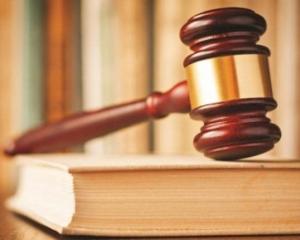In 1976, Harrison was found to have subconsciously plagiarised the earlier tune, a verdict that had repercussions throughout the music industry. He claimed to have used the out-of-copyright Oh Happy Day, a Christian hymn, as his inspiration for the song's melody.
Now, Led Zeppelin is in court facing charges which allege the British rock band stole the opening chords for Stairway to Heaven from the 1967 instrumentalTaurus by the American band Spirit. It seems the two bands did tour together in the US over a period of two years.
The case comes just over a year after a federal jury in Los Angeles found recording stars Robin Thicke and Pharrell Williams had plagiarised Motown great Marvin Gaye in creating their hit single Blurred Lines, and awarded Gaye's family $US7.4 million.
Led Zeppelin members Robert Plant and Jimmy Page are in court and are expected to testify eventually in the closely watched trial. Stairway to Heaven is considered one of the most recognisable compositions in rock history and is the signature song of Led Zeppelin, which broke up in 1980.
There is genuine concern in the music industry about the future of music writing if the case is successful. High-profile music industry lawyers are already lining up to take further cases as technology improves and comparing songs note-for-note becomes instantly available.
Kurt Dahl, a United States lawyer and drummer for One Bad Son, wrote in his blog the line between inspiration and plagiarism is a fine one. Everyone from Shakespeare to The Beatles to Sam Smith has been accused of stealing ideas from those who came before them.
As poet T. S. Eliot famously wrote: "Immature poets imitate; mature poets steal''.
A US district judge decided in April that, while the four-chord backbone shared by the Stairway to Heaven and Taurus is a common convention in the music industry, the similarities between the songs were more than just chord structure.
A jury will now decide whether Stairway's guitar intro was stolen from Taurus and if Robert Plant and Jimmy Page are liable for copyright infringement.
The timing of this lawsuit could not be more critical: starting in June, Led Zeppelin is preparing to re-release all of its albums in deluxe, remastered vinyl and CD editions. Led Zeppelin IV (which contains Stairway) is Zeppelin's best-selling album.
It is not the first time Led Zeppelin has been accused in this way, and if the case against Plant and Page is successful, it surely will not be the last.
The idea of an increasing number of music plagiarism cases entering the courts adds to the question - is there a finite number of musical note combinations and has that limit been reached?
For instance, the first few bars of the 1967 smash hit Whiter Shade of Pale, by Procol Harum are near identical to the second movement from Johann Sebastian Bach's Orchestral Suite No. 3 in D major, BWV 1068, better known as Air on the G String. After that, the pop classic's music seems original to those who have analysed the song.
We are all influenced by the world around us and songwriters are no exception. The US law states anything reflecting a "minimal spark of creativity and originality'' can be copyrighted, including melody, chord progression, rhythm and lyrics.
In the event of a trial, the person claiming infringement must prove two things - access and substantial similarity.
The minimal spark of creativity and originality may be expunged by ongoing cases against songwriters and that would be a tragedy.
Whatever the outcome of the Led Zeppelin trial, one thing is certain: The song remains the same.












